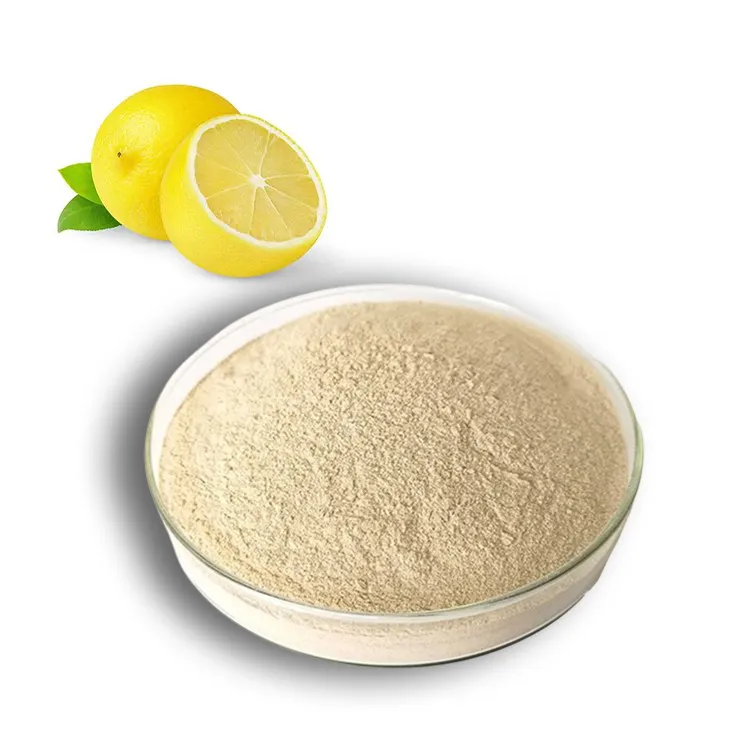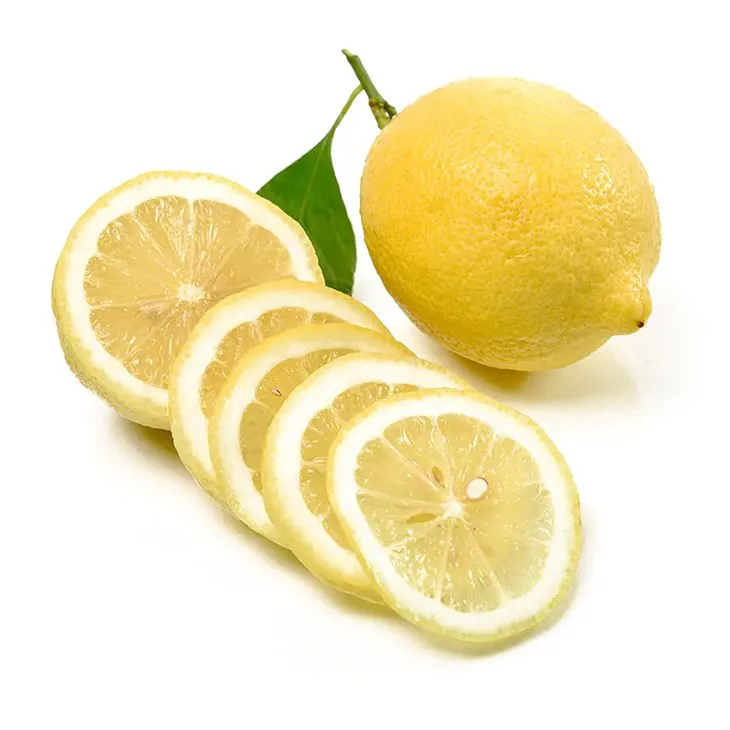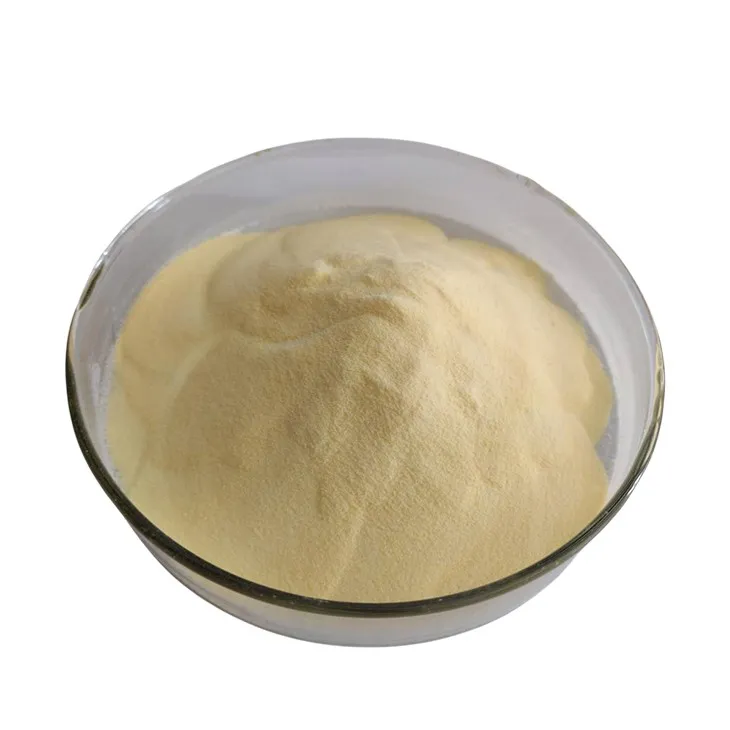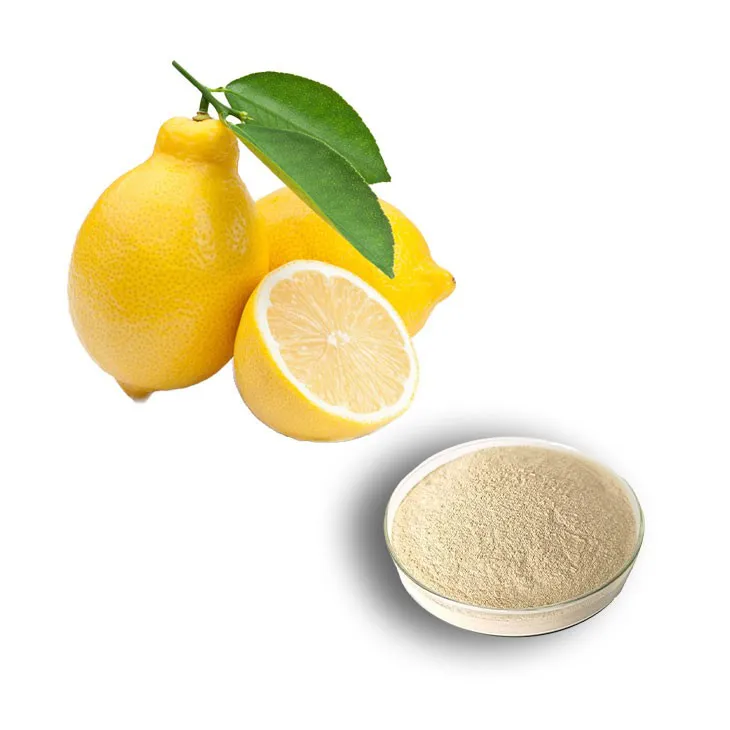- 0086-571-85302990
- sales@greenskybio.com
What is lemon extract and why use it on the skin?
2024-11-12

1. Introduction to Lemon Extract
Lemon Extract is a substance derived from lemons, which are well - known for their refreshing scent and tangy taste. Lemons are rich in various bioactive compounds, and when these are extracted, they form Lemon Extract. It is a concentrated form of the beneficial elements present in lemons.

2. Composition of Lemon Extract
2.1 Citric Acid
One of the main components of lemon extract is citric acid. Citric acid is a weak organic acid that plays several important roles. It is a natural exfoliant. When applied to the skin, it helps to break down the bonds between dead skin cells, allowing them to be easily removed. This process of exfoliation is crucial for maintaining healthy - looking skin as it can unclog pores and improve the overall texture of the skin.
2.2 Flavonoids
Lemon extract also contains flavonoids. Flavonoids are a class of plant - based compounds with antioxidant properties. They help to protect the skin from damage caused by free radicals. Free radicals are unstable molecules that can cause oxidative stress in the skin, leading to premature aging, wrinkles, and other skin problems. By neutralizing these free radicals, flavonoids in lemon extract can contribute to maintaining the skin's youthful appearance.
2.3 Vitamins
Lemons are a good source of vitamins, and these vitamins are also present in lemon extract. For example, vitamin C is abundant in lemons. Vitamin C is essential for collagen synthesis in the skin. Collagen is a protein that provides structural support to the skin, keeping it firm and elastic. By promoting collagen production, the vitamin C in lemon extract can help reduce the appearance of fine lines and wrinkles.
3. Benefits of Using Lemon Extract on the Skin
3.1 Exfoliation
As mentioned earlier, the citric acid in lemon extract is a great exfoliant. Dead skin cells can accumulate on the surface of the skin, making it look dull and rough. Regular use of lemon extract can gently remove these dead cells, revealing the fresh, new skin underneath. This not only improves the appearance of the skin but also allows other skincare products to penetrate more effectively.
3.2 Pore Tightening
Lemon extract can help in tightening pores. When the pores are clean and free from debris due to exfoliation, they appear smaller. Additionally, the astringent properties of lemon extract can constrict the pores, giving the skin a smoother and more refined look. This is especially beneficial for people with oily or combination skin types, as they are more prone to enlarged pores.
3.3 Soothing Irritated Skin
The anti - inflammatory nature of lemon extract makes it suitable for soothing irritated skin. Skin can become irritated due to various factors such as environmental pollutants, harsh skincare products, or allergies. The compounds in lemon extract can calm down the inflammation, reducing redness and discomfort. For example, if you have a mild sunburn or a small rash, applying lemon extract - based products may provide some relief.
3.4 Brightening the Skin
The vitamin C and other antioxidants in lemon extract can help brighten the skin. They can reduce the appearance of dark spots, hyperpigmentation, and uneven skin tone. This is because vitamin C inhibits the production of melanin, the pigment responsible for darkening the skin. By using lemon extract regularly, you may notice a more radiant and even - toned complexion.
4. How to Use Lemon Extract on the Skin
4.1 Dilution
Pure lemon extract is very acidic and can be too harsh for the skin if used undiluted. It is important to dilute it with a suitable carrier such as water or a gentle oil. For example, you can mix a few drops of lemon extract with a tablespoon of water or almond oil. This dilution helps to reduce the acidity and make it safe for application on the skin.
4.2 Patch Test
Before using lemon extract on a large area of your skin, it is advisable to do a patch test. Apply a small amount of the diluted lemon extract on a small area of your skin, such as the inside of your wrist or behind your ear. Wait for 24 hours to see if there are any signs of irritation, redness, or allergic reaction. If there are no adverse effects, it is generally safe to use on other parts of the skin.
4.3 Application
Once you have diluted the lemon extract and done the patch test, you can apply it to your face or other parts of the skin. You can use a cotton ball or a clean fingertip to gently dab or massage the extract onto the skin. Avoid getting it in your eyes, as it can cause irritation. Leave it on for a few minutes (usually 5 - 10 minutes) and then rinse it off thoroughly with lukewarm water.
5. Precautions When Using Lemon Extract on the Skin
5.1 Sensitivity
Some people may have sensitive skin that is more prone to irritation from lemon extract. If you have sensitive skin, you may need to use it less frequently or in a more diluted form. Even with proper dilution, if you experience any discomfort, redness, or itching after using lemon extract, discontinue use immediately.
5.2 Sun Exposure
Lemon extract can make the skin more sensitive to sunlight. After using lemon extract - based products, it is important to protect your skin from the sun. Apply a broad - spectrum sunscreen with a high SPF (at least SPF 30) before going outdoors. This will help prevent sunburn and potential skin damage due to increased sun sensitivity.6. Lemon Extract in Skincare Products
6.1 Facial Cleansers
Many facial cleansers contain lemon extract. The exfoliating and brightening properties of lemon extract make it a valuable ingredient in cleansers. It helps to remove dirt, oil, and dead skin cells while also improving the overall appearance of the skin. When using a lemon - extract - containing cleanser, follow the instructions on the product label for best results.
6.2 Toners
Lemon - extract - based toners are popular in the skincare market. Toners are used after cleansing to balance the skin's pH level. The astringent properties of lemon extract in toners can help tighten pores and prepare the skin for the next steps in the skincare routine, such as applying moisturizer or serum.
6.3 Masks
There are also face masks that contain lemon extract. These masks can provide a more intensive treatment for the skin. For example, a lemon extract mask can be used once or twice a week to deeply exfoliate, brighten, and soothe the skin. However, it is important to note that masks should not be left on the skin for too long, as over - exposure to the acidic components of lemon extract can cause irritation.7. Conclusion
Lemon extract is a natural and beneficial ingredient for the skin. Its composition, which includes citric acid, flavonoids, and vitamins, offers multiple advantages such as exfoliation, pore tightening, soothing irritated skin, and brightening. However, it is important to use it carefully, following proper dilution, patch testing, and taking necessary precautions such as protecting the skin from sun exposure. When used correctly, lemon extract can be a great addition to a skincare routine, helping to maintain healthy and beautiful skin.
FAQ:
Can lemon extract cause skin irritation?
Although lemon extract has anti - inflammatory properties and is suitable for many skin types, it can cause irritation in some cases. Lemon extract is acidic, and if used in high concentrations or on very sensitive skin, it may lead to redness, stinging, or burning sensations. It's always advisable to do a patch test before applying it more widely on the skin.
How should lemon extract be applied to the skin?
Lemon extract can be applied in various ways. It can be part of a skincare product like a toner or a cream, which is formulated with the appropriate concentration for skin application. If using pure lemon extract, it should be diluted with a suitable carrier oil or water. For example, a few drops of lemon extract can be mixed with a teaspoon of jojoba oil and then gently patted onto the skin. Avoid applying it around the eyes as the skin there is extremely sensitive.
Is lemon extract suitable for oily skin?
Yes, lemon extract is suitable for oily skin. The citric acid in it helps to break down excess oil and dead skin cells, which can clog pores. By exfoliating and reducing oiliness, it can also help in preventing acne breakouts. It gives the skin a fresh, matte look and can improve the overall appearance of oily skin.
Can lemon extract lighten skin?
Lemon extract may have a mild skin - lightening effect. The citric acid and other components can help to fade dark spots and even out skin tone over time. However, it's not a substitute for professional skin - lightening treatments. Moreover, when using lemon extract for this purpose, it should be used with caution as over - exposure to its acids can damage the skin.
How often can lemon extract be used on the skin?
The frequency of using lemon extract on the skin depends on the skin type. For normal skin, it can be used 2 - 3 times a week. For oily or acne - prone skin, it may be used more frequently, up to 3 - 4 times a week. However, for sensitive skin, it should be used less often, perhaps once a week or even less, as it may cause irritation if used too often.
Related literature
- The Benefits of Citrus Extracts in Skincare"
- "Lemon - Based Skincare: Science and Application"
- "Natural Extracts for Skin Health: Focus on Lemon"
- ▶ Hesperidin
- ▶ Citrus Bioflavonoids
- ▶ Plant Extract
- ▶ lycopene
- ▶ Diosmin
- ▶ Grape seed extract
- ▶ Sea buckthorn Juice Powder
- ▶ Fruit Juice Powder
- ▶ Hops Extract
- ▶ Artichoke Extract
- ▶ Mushroom extract
- ▶ Astaxanthin
- ▶ Green Tea Extract
- ▶ Curcumin
- ▶ Horse Chestnut Extract
- ▶ Other Product
- ▶ Boswellia Serrata Extract
- ▶ Resveratrol
- ▶ Marigold Extract
- ▶ Grape Leaf Extract
- ▶ New Product
- ▶ Aminolevulinic acid
- ▶ Cranberry Extract
- ▶ Red Yeast Rice
- ▶ Red Wine Extract
-
American Ginseng Root Extract
2024-11-12
-
Senna Leaf Extract
2024-11-12
-
Garcinia Cambogia Extract
2024-11-12
-
Scutellaria Extract
2024-11-12
-
Peppermint Oil
2024-11-12
-
Eyebright Extract
2024-11-12
-
Selenium yeast
2024-11-12
-
Carrageenan Extract Powder
2024-11-12
-
Milk Thistle Extract
2024-11-12
-
Okra Extract
2024-11-12





















